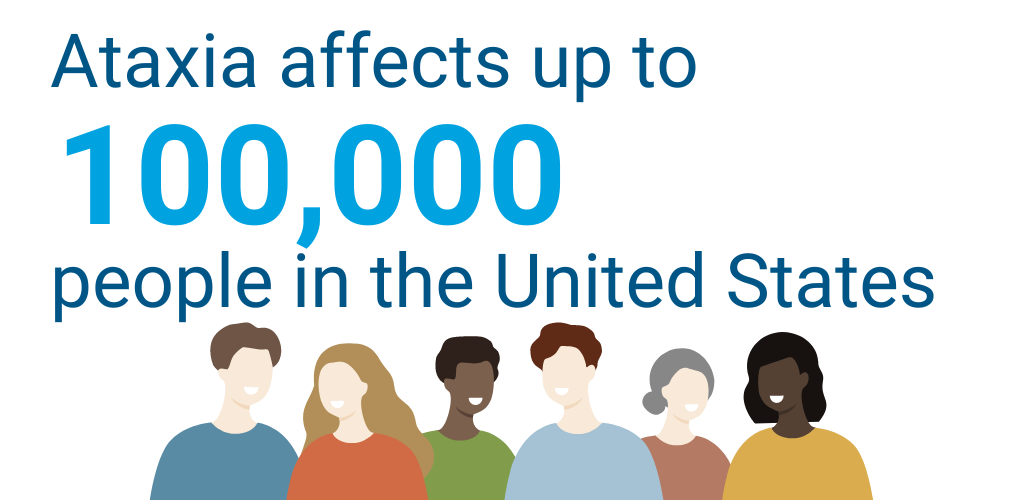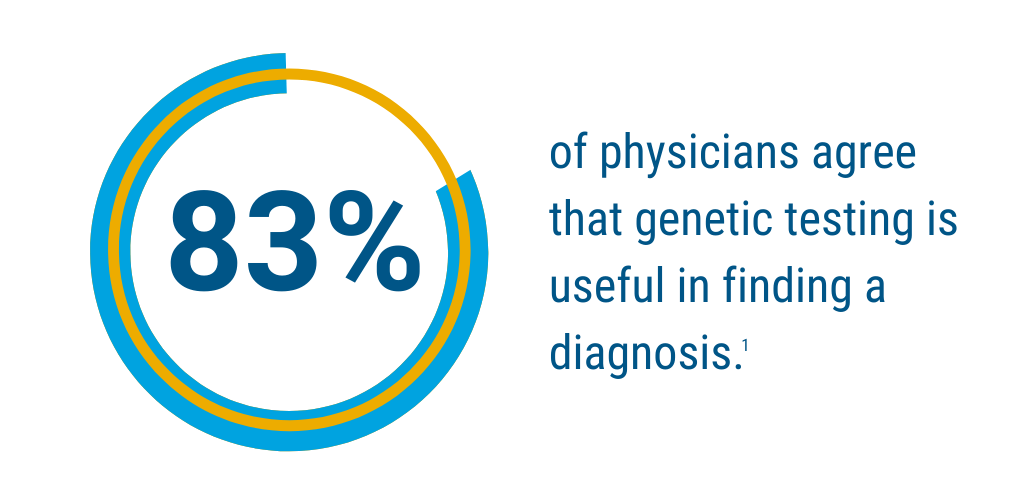
Bill Nye the Science Guy is speaking at the 2024 Annual Ataxia Conference! Register now. LEARN MORE!
Bill Nye the Science Guy is speaking at the 2024 Annual Ataxia Conference! Register now. LEARN MORE!


Welcome to our series dedicated to understanding genetic testing for Ataxias! Throughout these questions posed below, we dive into the layers behind genetic testing. Exploring the fundamentals of genetic testing for Ataxias, our goal is to empower our Ataxia community with knowledge about genetic testing. By grasping the basics of genetic testing, we aim to equip you with valuable insights into early detection, personalized care, and the journey towards managing Ataxias effectively.
Working with your doctor to obtain an Ataxia diagnosis can be difficult. Medical history, family history, and a neurological evaluation are used to diagnose Ataxia. Various blood tests may also be used to rule out other disorders. Your doctor may recommend genetic counseling and testing if a hereditary form of Ataxia is suspected.
Genetic testing refers to medical tests that recognize changes in someone’s DNA. The results of a genetic test can rule out or confirm a suspected genetic condition, such as Ataxia. Genetic testing can also help determine the chance of passing on a genetic disorder. A diagnosis confirmed by genetic testing is required to participate in some Ataxia research opportunities and clinical trials.
Presented by Tara Newcomb, MS, CGC
Presented by Jeremy Schmahmann, MD
Genetic testing for the Ataxias is complicated, has different methodologies and needs to be carefully chosen in order to provide accurate information. NAF strongly recommends that anyone having genetic testing work with a certified genetic counselor so that the appropriate genetic test is selected. General information about genetic counseling can be found at the National Society of Genetic Counselors website.
NAF is offering free virtual genetic counseling and genetic testing for individuals who are at-risk for SCA1, SCA2, or SCA3.
At this time, the Genetic Counseling and Testing Initiative is available to a person who is at- risk for SCA1, SCA2, and SCA3 because they have a family member with a confirmed genetic diagnosis. Participants must live in the United States, be 18 years of age or older, and become members of NAF to participate.
The first step to get started is filling out the Genetic Counseling and Testing Initiative Screening Form. This tool will help you confirm that you are eligible to participate. If you qualify, you will receive instructions on how to enroll in this program through a secure online portal.
If you have any questions about the NAF Counseling and Testing Initiative, please contact Kelsey Trace at research@ataxia.org.
The Little Zebra Fund aims to provide universal access to genetic diagnoses for families in the San Francisco Bay Area by eliminating the financial burden of testing.
RARE Concierge Patient Services is a free service for patients, caregivers, and healthcare providers. Their Patient Services Guides help you navigate the complex world of rare diseases – including accessing genetic testing.
The Rare Genomes Project is a research study focused on patients and families in the USA with rare and genetically undiagnosed conditions. If prior genetic testing has not identified what causes your ataxia, you may be eligible for free genomic sequencing.
The CACNA1A Foundation, in partnership with Probably Genetic, provides free genetic testing to individuals in the USA with mutations in their CACNA1A gene. This includes people with Spinocerebellar ataxia Type 6 (SCA6), Episodic Ataxia Type 2 (EA2), and other forms of congenital ataxia.
All companies listed here are CLIA (Clinical Laboratory Improvement Amendments) certified diagnostic laboratories. This list may not include all available options and is subject to change. Please consult your doctor for options that are available to you. NAF does not endorse any one genetic testing company. NAF does not provide financial assistance for genetic testing and is not liable for results provided.
Patients seeking genetic testing should work with a qualified health care provider to ensure that the appropriate genetic testing is ordered through a qualified laboratory and that the results of the testing are accurately interpreted.
Genome Medical – An American telegenetics care delivery company, offered genetic counselling and testing services
GeneDX – An American company offering genetic counseling and testing services.
AmbryGen – An American genetic testing laboratory offering several neurological genetic tests.
Blueprint Genetics – A global genetic testing laboratory offering ataxia panel testing.
Fulgent Genetics – An American genetic testing laboratory offering Ataxia Repeat Expansion Analysis panel tests.
Invitae – A global genetic testing laboratory offering genetic testing for hereditary ataxia.
MNG/LabCorp – An American genetic testing laboratory offering several ataxia-specific genetic tests.
Variantyx – An American genetic testing laboratory offering several ataxia-specific genetic tests, including RFC1 Ataxia/CANVAS, SCA27B, and SCA4.
University of Chicago – An American genetic testing laboratory offering several ataxia-specific genetic tests, including RFC1 Ataxia/CANVAS and SCA27B.
Deciding whether or not to get ataxia genetic counseling and testing is a big decision. It is very normal to have questions.
Here we have a collection of questions that NAF frequently receives about genetic counseling and testing. We have worked with genetic counselors to get you answers you need. Do you have a questions that is not listed here? You can submit recommendations for new FAQ articles through this form.
Genetic testing is an effective way to find out about the secrets buried in our DNA, which is the genetic code that makes each of us unique. Reading it is like reading the life guidebook. A small piece of your genetic material is generally taken from a swab of your cheek, blood, or hair and is analyzed in this way to find specific changes or variations in your genes. Genes are tiny bits of information that tell our bodies what to do and give us traits like eye color and the chance of getting some specific diseases. Genetic tests can tell us a lot about our health, our ancestry, and any genetic diseases we might have or be more likely to get. You can use it to find out about your family background and even make medical decisions.
Learn more about the science of genetic testing in the articles below.
Find an Ataxia Center or neurologist near you to discuss your options
Our generous donors help us fund promising Ataxia research and offer support services to people with Ataxia. Your gift today will help us continue to deliver on our mission to improve the lives of persons affected by Ataxia.
Join for FREE today! Become a part of the community that is working together to find a cure. As a member you will receive access to the latest Ataxia news with our e-newsletter and Generations publication.
